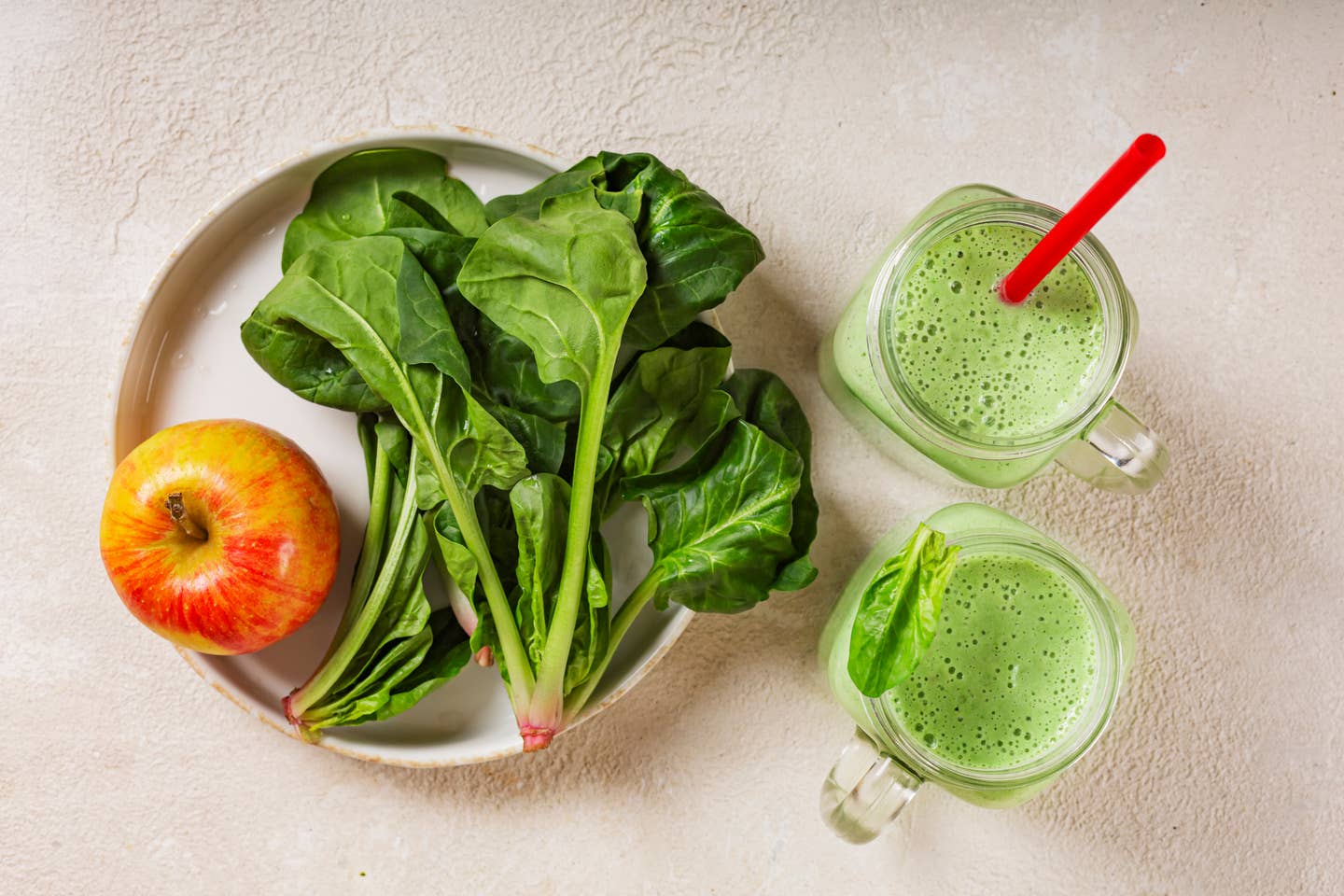
Exercise and Eat This Combination of Fruits and Vegetables to Boost Mood
As a registered dietitian, I have patients who tell me they eat when they are stressed, depressed, or anxious. The thing is, food can actually act as a mood booster. Therefore eating during these emotional times can be viewed as less of a “problem” and more as a potential solution, as long as it’s done right.
Here’s what new research has to say about the combination of diet and exercise and how it can impact our mood for the better.
What causes us to turn to junk food when feeling down?
Whether you’re feeling stressed or sad, it’s common to want to turn to carbs, sweets, salts, or high-fat foods. Some common reasons these cravings pop up is due to:
- Psychological or emotional stress
- Imbalances with hormones
- Certain medical conditions
- Some medications
Serotonin and dopamine are two neurotransmitters in our brain that can influence how we eat, according to the National Eating Disorders Association. Serotonin can control our memory, sleep, mood, and appetite, therefore when levels are low, we can deal with things such as depression. While research is lacking in human participants, one 2016 study on animals found that low levels of serotonin cause a sugar craving to give a short-term mood boost. Unfortunately, over time, the constant intake of sugar-rich food may become ineffective in giving us that serotonin boost, according to an older 2008 study.
Dopamine is often referred to as the “pleasure” chemical due to its involvement in reward-motivated behavior. The National Eating Disorders Association states that for some people, eating or overeating certain foods can be viewed as a reward and lead to a pleasing feeling.
Even if your neurotransmitter levels are normal and balanced, turning to “junk foods” can just be a form to self-medicate during trying times.
New research states that fruits, veggies, and exercise is the answer
Turning to foods doesn’t necessarily have to be a bad thing when you’re feeling sad or depressed, according to new research. The 2021 study published in the Journal of Happiness Studies found that happiness and eating fruits and vegetables (plus exercising) are actually related.
The 2021 analysis was based in the United Kingdom and included over 40,000 households beginning in 2009. Life satisfaction was measured by asking how the individuals felt on a scale of 1 to 7 (with 1 being not satisfied and 7 being completely satisfied) when it came to how they felt about their life overall. The researchers also considered food and activity-related lifestyle behaviors when it came to overall life satisfaction. Portions of fruit and vegetable intake ranged from 1, being less than one serving, all the way up to 7 or more. Sports activity was determined on a scale of 0 to 10, with 0 being no activity and 10 being very active.
The results found that more fruit and vegetable intake resulted in an increase in mental health and happiness. It was also found that more participation in exercise improved happiness, with men seeming to have more benefits from participating than women. The researchers conclude that the shift in eating more vegetarian and adding exercise has become increasingly popular, and with it comes long-term life satisfaction.
“Behavioral nudges that help the planning self to reinforce long-term objectives are likely to be especially helpful in maintaining a healthy lifestyle,” says researcher Dr. Adelina Gschwandtner, in an interview. “If a better lifestyle not only makes us healthier but also happier, then it’s a clear win-win situation.”
Another researcher, Professor Uma Kambhampti, said in the same interview, “there has been a bigger shift in recent years for healthier lifestyle choices. To establish that eating more fruit and vegetables and exercising can increase happiness as well as offer health benefits is a major development. This may also prove useful for policy campaigns around environment and sustainability.”
Why fruits, veggies, and exercise may be the answer to a happy brain
When we eat plenty of plant-based foods and exercise, we’re improving our gut health. While this is great for the digestive process, it also influences our mood due to the gut-brain connection.
According to John Hopkins Medicine, this connection links our gastrointestinal system with our central nervous system. Therefore, if there are problems happening in the gut (for example, diarrhea, constipation, or bloating) it could lead to mood changes such as anxiety and depression.
Consuming fruits, vegetables, and other plant-based foods have been linked with improving gut bacteria according to a 2018 study published in Nutrients. The study found that just two weeks of diet change saw improved diversity in gut bacteria which helped to produce anti-inflammatory compounds.
Studies have also linked exercise with improved gut health, with a 2017 article stating exercise can help the diversity of gut bacteria, the amount, and also improve the development.
Plus, certain fruits and vegetables contain an amino acid called tryptophan which helps to produce serotonin. The Physicians Committee for Responsible Medicine states that sources include:
- Green leafy vegetables
- Soybeans
- Mushrooms
- Broccoli
- Peas
Although you can get tryptophan from meats, such as turkey, it can be harder for our bodies to turn it into serotonin and it may wind up reducing how much serotonin our body makes.
Bottom line: To Eat to Boost Your Mood, Choose Fruits and Vegetables
New research claims that eating higher amounts of fruits and vegetables and pairing it up with a regular exercise routine can wind up benefitting our physical and mental health long-term.
While it’s not absolutely certain why this takes place, it could be due to the benefits these lifestyle changes bring to our gut and its potential to increase “feel good” neurotransmitters.
More From The Beet






